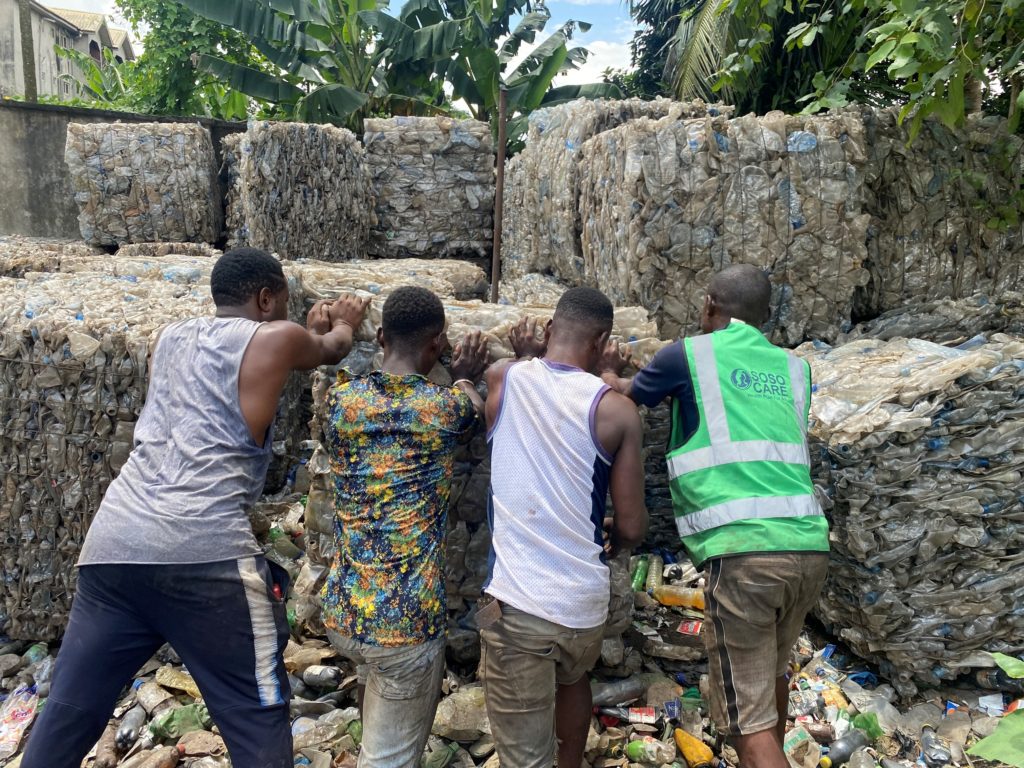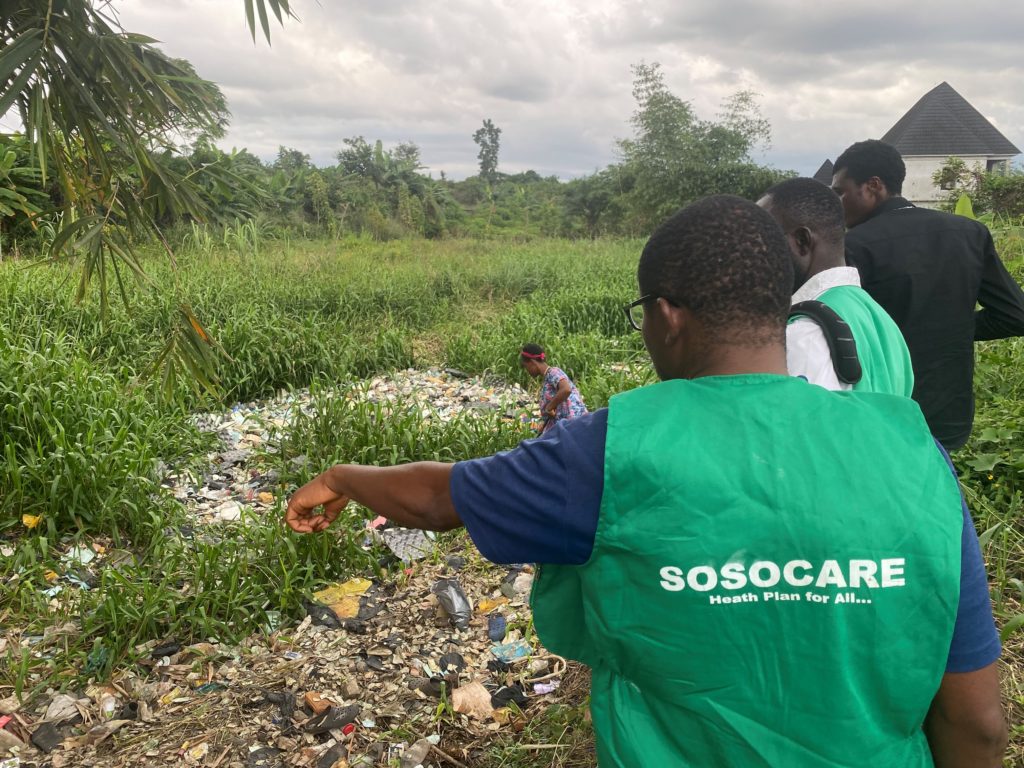Soso Care is a micro mobile health insurance company, using an innovative approach to providing health insurance to low-income populations in Nigeria. They offer users a way to pay for health insurance cover using recyclable waste as premium.
Nigeria generates over 34 million tonnes of waste annually, including 20 billion plastic bottles, of which less than 10 per cent is collected, sorted and recycled. At the same time, because of pervasive poverty and poor healthcare financing (less than three per cent of Nigeria’s 200 million population have health insurance), quality healthcare is out of reach for the majority of Nigerians.
The GSMA are supporting Soso Care to expand their current offering, purchasing recyclable waste from low-income individuals and selling to middlemen and recycling companies. Proceeds are used to provide health insurance premiums as payment to the households who opt into the scheme. Users can also opt for cash payments.
The project aims to increase automation across Soso Care’s systems by introducing digital and mobile applications. In addition, the GSMA grant will support Soso Care in developing a processing element for their operations which will enable the collection of more waste and increase the value generated from waste collections.
The GSMA grant was awarded in April 2022. We caught up with Nonso Opurum, the Co-Founder and CEO of Soso Care, to discuss his expectations for how the solution will evolve in the coming years.
What need does your service cater to?
Soso Care is developing a health insurance product that helps low-income Nigerians afford quality healthcare with or without cash. We’re committed to increasing awareness of, and trust in, insurance products to improve access to healthcare and insurance financing.
Our proprietary pay-as-you-like model enables users to utilise proceeds from their recyclables saved in our digital wallet to finance their insurance premium. We’re also working on transferring the value from one wallet to another.
We’re excited about the future and are looking at Soso Care as a Software as a Service (SaaS) solution that provides access to health insurance and micro-savings through a digital wallet. This is mostly for our users from other countries where there is an urgent need for more sustainable healthcare financing models and awareness.
We are also addressing the need for behaviour change around recycling. This includes using radio advertisements to encourage the public to recycle plastic litter in exchange for payments. We have found that incentives are a key factor that drive behaviour change.
What are the challenges you expect to encounter in deploying the solution and with digital adoption?
Few people prioritise buying insurance products – particularly among lower-income communities. However, COVID-19 increased the awareness and use of technology among our target audience, as well as the need for such products. One of the main incentives for customers to use our application, as well as request for USSD to cover non-feature phones, is our embedded insurance which provides cash back as well as insurance products. The all-in-one product has grown very well and we’re working on moving these current offline/ paper processes into a seamless technology-driven service which would create a means of health financing families.
What are you expecting to learn through the GSMA project?
Our mission is to improve healthcare access and financing by utilising recyclables as premium to bring marginalised communities into the fold of healthcare coverage. In this way, it tackles twin issues of plastic waste and access to healthcare.
One area we want to learn more about from the GSMA is around distribution. The GSMA works with mobile operators who have done a great job in building connectedness, inclusion and access. We also hope to gain more insight from the GSMA in measuring our impact
This opportunity enables us to improve our product and position in the market. One of our limitations has been around marketing and this project can help strengthen this. In the past six months we have seen significant growth in our users, doubled our revenue, and recovered over 50 tonnes of plastics. We have also created more income opportunities for our agents spread across the city, as well as improved our technology.
How do you see your business model evolving?
We use an end-user subscription model as well as a business-to-business (B2B) model. Through our subscription model, users pay cash or exchange their recyclables as insurance premiums with proceeds shared between us and our underwriters. In our B2B model, recycling businesses use our service to retail insurance plans to their customers.
However, we’re learning from this project around commercialisation. In recent months, we have received many requests from businesses asking for collaboration – mostly across countries in Africa and Asia. We are learning how to turn Soso Care into products that would reach and enable endless possibilities for many businesses looking to leverage our platform.
What partnerships have you formed, and what partnerships do you hope to form in the near future?
We have an existing partnership with AXA Insurance in Nigeria and AIICO insurance. We hope to take this forward to reach more countries across Africa and Asia where AXA has a presence as a global brand promoting insurance. To enhance financial inclusion, we are also working with Wema Bank in Nigeria – notable for their innovative work on the fully digital ALAT banking system. When we bring these products and services together in the near months, we would become a simple application. We’re also in conversation with a global recycling company for offtake of our recyclables which should improve the value of these materials and ensure that our agents earn more. The collaboration is a win-win, it creates value for us and improves stakeholders’ bottom lines.
What needs to happen to make this service scale and become sustainable?
For us to reach our goal, we’re hoping to collaborate with mobile operators to enable us to drive distribution and financial access. Building value around recyclables would be exciting as it would be a fast way to drive financial inclusion, importantly for women
THIS INITIATIVE IS CURRENTLY FUNDED BY THE UK FOREIGN, COMMONWEALTH & DEVELOPMENT OFFICE (FCDO), AND SUPPORTED BY THE GSMA AND ITS MEMBERS.







